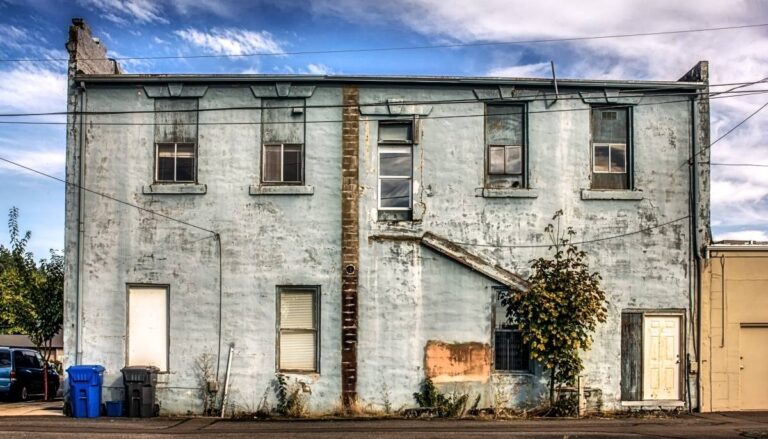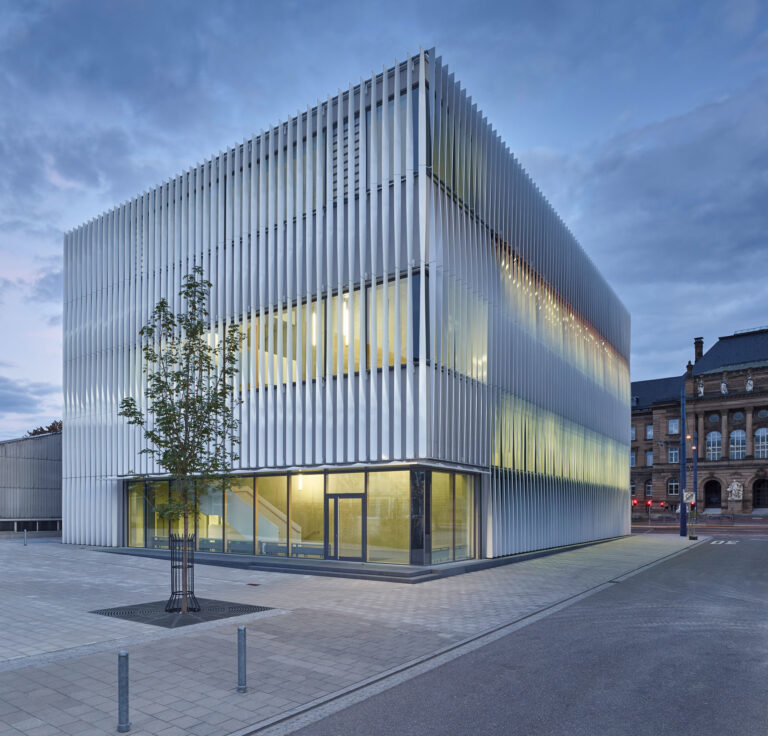
In Dutch: Als je achter de façade van mensen kon kijken.
Als je bij mensen naar binnen kon kijken.
Page Description
Discover what lies behind people’s facades,
revealing deeper truths about their motivations
and hidden aspects of their personalities.
What Lies Beneath the Surface
What lies behind the polished appearances we show to the world? Beneath the surface, behind the facades, often reside profound struggles, unanswered questions, and deeply human stories. This page invites you to look beyond what is visible – to explore the truths concealed within. Through the voices of grieving fathers like Ousmane Dia and Guillaume Van der Stighelen, we glimpse the raw emotions of loss, the demand for justice, and the torment of not knowing. Their stories remind us of the humanity we all share and the fractures that appear when truth is withheld.
The phrase “Every beautiful façade seemed to conceal rot and ruin that could almost be seen” speaks to this hidden reality. It challenges us to look beyond appearances, to understand the stories people carry, and to see the humanity that lies behind even the most impenetrable facades.
Wat Schuilgaat Achter de Mooie Schijn
Als Je Achter Mensen Hun Façades Zou Kunnen Kijken
Wat schuilt er achter de gepolijste maskers die we aan de wereld tonen? Onder de oppervlakte, achter de façades, liggen vaak diepe worstelingen, onbeantwoorde vragen en uiterst menselijke verhalen. Deze pagina nodigt je uit om verder te kijken dan het zichtbare—om de verborgen waarheden te ontdekken.
Door de stemmen van rouwende vaders zoals Ousmane Dia en Guillaume Van der Stighelen leren we de rauwe emoties van verlies kennen, de roep om gerechtigheid en de kwelling van niet weten. Hun verhalen herinneren ons aan de gedeelde menselijkheid en aan de scheuren die ontstaan wanneer de waarheid wordt achtergehouden.
De uitdrukking “Achter elke mooie façade leek verrotting en verval schuil te gaan die bijna zichtbaar waren” spreekt tot deze verborgen realiteit. Het daagt ons uit om voorbij de schijn te kijken, om de verhalen van mensen te begrijpen en de menselijkheid te zien die achter zelfs de meest ondoordringbare façades ligt.
1 The nature of life – where people can just be themselves
“I don’t want to feel hatred towards anyone. But that doesn’t mean I don’t strive for justice. (…) I don’t want to sow hatred, and I also take full responsibility for this statement, but there is definitely class justice in Belgium. (…)
Ousmane Dia, father of Sanda”
1 De naturel van het leven – waar mensen heel gewoon kunnen zijn
‘Ik wil geen haat voelen tegenover niemand.’ Maar dat betekent niet dat ik niet naar gerechtigheid streef. (…) Ik wil geen haat zaaien, en ik neem ook de volle verantwoordelijkheid voor deze uitspraak, maar in België bestaat wel degelijk klassenjustitie. (…)
Ousmane Dia, vader van Sanda”


Every beautiful façade seemed to conceal rot and ruin that could almost be seen.
In Dutch: Elke prachtige façade leek verrotting en verval te verbergen, die je bijna kon zien.
2 Open letter to the convicted members of Reuzegom
Gentlemen, I will not pass judgment on your actions. The court has done that, and I leave the discussion about that verdict to others. It is something else that I want to point out. Sanda’s father asks you for the details of what exactly happened. He is not asking for them to make you even more guilty than you already are. He asks for a different reason.
When you learn that your son has died, the details of how it happened haunt you for years. Down to the smallest details. It may sound strange to someone who hasn’t experienced it themselves, but it’s true. As a parent, you want to know how your child suffered, if anything was said. Nights go by as you wander, trying to relive what your son experienced. The less you know, the more you start to fantasize. And that is hell. If you then feel that something is being withheld, it becomes even worse.
Sanda was a reasonable person: if he had suspected for even a moment that his life would be in danger, he would not have participated. On l’a trompé – he was deceived. There are people in Reuzegom with wrong intentions, and the court missed the opportunity to filter them out. Believe me: society will regret that. (…)
You are under attack, and it’s harsh. That strengthens the bond between you. Do not use that bond to exclude Sanda’s parents from your story. It is also their story. (…) Reach out to them, separate from the outside world. Tell them what you know. Tell them everything. It won’t bring their son back. But it will help them. You can help them. (…)
For me, justice has not been served. This trial was the outcome of what had already been determined long before. (…)
At the same time, I am convinced that I cannot experience anything worse: the judge has valued my son’s life at 15,000 euros. (…) I feel angry and powerless.
I will never know what happened in my son’s final hours, and the people who do know go back to their ordinary lives.
When a father openly begs for answers, give them to him. Without the press or lawyers present. Just. Among people.
Guillaume Van der Stighelen
Father of Mattias, deceased in 2011
2 Open brief aan de veroordeelde leden van Reuzegom
Heren, ik ga geen oordeel vellen over jullie daden. Dat heeft de rechtbank gedaan en de discussie over die uitspraak laat ik over aan anderen. Het is iets anders waarop ik wil wijzen. De vader van Sanda vraagt jullie de details over wat er precies gebeurd is. Hij vraagt die niet om jullie nog schuldiger te maken dan jullie al zijn. Hij vraagt het om een andere reden.
Als je verneemt dat je zoon is omgekomen, dan spookt het jaren door je hoofd hoe het precies is gebeurd. Tot in de kleinste details. Dat kan vreemd klinken voor iemand die het zelf niet heeft meegemaakt, maar het is zo. Als ouder wil je weten hoe je kind heeft geleden, of er nog iets gezegd werd. Nachten dwaal je rond, trachtend te herbeleven wat je zoon heeft beleefd. Hoe minder je weet, hoe meer je gaat fantaseren. En dat is een hel. Als je dan het gevoel hebt dat er iets wordt achtergehouden, wordt het nog erger.
Sanda was een redelijk mens: als hij ook maar één moment had vermoed dat zijn leven in gevaar zou komen, had hij niet deelgenomen. On l’a trompé – ze hebben hem misleid. Er zitten bij Reuzegom mensen met verkeerde bedoelingen, en het hof heeft de kans laten liggen om die eruit te filteren. Geloof me: de samenleving zal daar nog spijt van krijgen. (…)
Jullie worden aangevallen en hard. Dat versterkt de band tussen jullie. Gebruik die band niet om de ouders van Sanda uit te sluiten uit jullie verhaal. Het is ook hun verhaal. (…) Neem contact op met hen, los van de buitenwereld. Verteld hen wat jullie weten. Vertel hen alles. Het zal hun zoon niet terugbrengen. Maar het zal hen helpen. Jullie kunnen hen helpen. (…)
Voor mij is géén recht geschied. Dit proces was de uitkomst van wat al veel langer vaststond. (…)
Tegelijk ben ik ervan overtuigd dat ik niets ergers meer kan meemaken: de rechter heeft de waarde van het leven van mijn zoon op 15.000 euro bepaald. (…) Ik voel me boos en onmachtig.
Ik zal nooit weten wat zich in de laatste levensuren van mijn zoon heeft afgespeeld, en de mensen die het wel weten pakken hun gewone leventje weer op.
Als een vader openlijk smeekt om antwoorden, geef hem die dan. Zonder pers of advocaten erbij. Gewoon. Onder mensen.
Guillaume Van der Stighelen
Vader van Mattias, overleden in 2011
Sanda was a reasonable person:
if he had suspected for even a moment that his life would be in danger,
he would not have participated. On l’a trompé – he was deceived.
There are people in Reuzegom with wrong intentions,
and the court missed the opportunity to filter them out.
Believe me: society will regret that. (…)
Un)glamorous (2015) | Fashion Industry Exposed | Full Documentary
Step behind the velvet rope in (Un)glamorous, a 42-minute TV special that peels back the glitter of the fashion world to reveal the real lives behind the runway. Directed by Bradley Blackburn and co-written with Keith Summa, this human-interest documentary follows Pedro Andrade, Clark Bockelman, and Cameron Keesling as they navigate the pressures, sacrifices, and unexpected moments of grace that lie beneath the surface of high society. Directed by: Bradley Blackburn Writers: Bradley Blackburn, Keith Summa Starring: Pedro Andrade, Clark Bockelman, Cameron Keesling
This doc goes behind the scenes into the seemingly glamorous world of male models to show you their tiny apartments and even tinier paychecks.
A Peek into The Life of Male Models | Glamorous The Naked Truth About Male Models – Streaming Now!
9 apr 2022 #Rampwalk #vintagefashion #luxury
What does it take to be a male model? What’s the truth behind rags to Gladrags of these men? While most models appear to be glamorous having a luxurious life, is there more to what meets the eye? A former model, Pedro Andrade himself finds out the answers to these questions.
Uncover the Truth Now in Glamorous The Naked Truth About Male Models – https://bit.ly/3KqsC0h
The phrase “Every beautiful façade seemed to conceal rot and ruin that could almost be seen” carries a rich, metaphorical meaning. Here’s a breakdown:
“Every beautiful façade”: This refers to an outward appearance that is attractive or pleasing. The term “façade” often implies that something looks good on the outside but may not necessarily reflect the reality underneath. It suggests an emphasis on appearances rather than the truth behind them.
“seemed to conceal”: This part indicates that beneath the attractive surface lies something hidden. The use of “seemed” suggests a perception or impression that may not be immediately obvious but is felt or suspected by the observer.
“rot and ruin”: These words symbolize decay, deterioration, or corruption. “Rot” evokes images of something that is spoiling or breaking down, while “ruin” implies destruction or collapse. Together, they suggest that beneath the beautiful surface, there is significant negativity or failure.
“that could almost be seen”: This phrase conveys a sense of awareness or intuition about the hidden issues. The word “almost” suggests that while the decay is not immediately visible, there are signs or clues that point to its existence. It hints at a level of discomfort or unease about the truth behind the facade.
Overall, this phrase can be interpreted as a commentary on the disparity between appearances and reality. It suggests that something may look beautiful or appealing on the outside, but there are underlying problems or issues that are either hidden or only partially visible. It can apply to people, organizations, or societies, highlighting the idea that not everything is as it seems and urging deeper scrutiny beyond surface appearances.

Façade:
(FALSE APPEARANCE)
A false appearance that makes someone or something seem more pleasant or better than they really are.
He kept his hostility hidden behind a friendly façade.
We are fed up with this façade of democracy.
Cambridge Dictionary
Crutch caught in sewer cover
17 mrt 2011
A pretty girl with both legs in casts must hold onto people while others try to free her crutch from a sewer cover.
